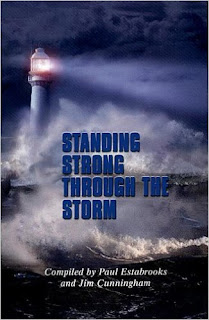 |
| The Riot in Ephesus Acts 19:21-27 |
The Daily Lectionary
MONDAY, July 8, 2019
(Revised Common Lectionary Year C)
(Semi-continuous Reading Plan)
Psalm 6
Prayer for Recovery from Grave Illness
To the leader: with stringed instruments; according to The Sheminith. A Psalm of David.
1 O Lord, do not rebuke me in your anger,
or discipline me in your wrath.
2 Be gracious to me, O Lord, for I am languishing;
O Lord, heal me, for my bones are shaking with terror.
3 My soul also is struck with terror,
while you, O Lord—how long?
4 Turn, O Lord, save my life;
deliver me for the sake of your steadfast love.
5 For in death there is no remembrance of you;
in Sheol who can give you praise?
6 I am weary with my moaning;
every night I flood my bed with tears;
I drench my couch with my weeping.
7 My eyes waste away because of grief;
they grow weak because of all my foes.
8 Depart from me, all you workers of evil,
for the Lord has heard the sound of my weeping.
9 The Lord has heard my supplication;
the Lord accepts my prayer.
10 All my enemies shall be ashamed and struck with terror;
they shall turn back, and in a moment be put to shame.
2 Kings 5:15-19a
5:15 Then he returned to the man of God, he and all his company; he came and stood before him and said, “Now I know that there is no God in all the earth except in Israel; please accept a present from your servant.” 16 But he said, “As the Lord lives, whom I serve, I will accept nothing!” He urged him to accept, but he refused. 17 Then Naaman said, “If not, please let two mule-loads of earth be given to your servant; for your servant will no longer offer burnt offering or sacrifice to any god except the Lord. 18 But may the Lord pardon your servant on one count: when my master goes into the house of Rimmon to worship there, leaning on my arm, and I bow down in the house of Rimmon, when I do bow down in the house of Rimmon, may the Lord pardon your servant on this one count.” 19 He said to him, “Go in peace.”
Acts 19:21-27
The Riot in Ephesus
19:21 Now after these things had been accomplished, Paul resolved in the Spirit to go through Macedonia and Achaia, and then to go on to Jerusalem. He said, “After I have gone there, I must also see Rome.” 22 So he sent two of his helpers, Timothy and Erastus, to Macedonia, while he himself stayed for some time longer in Asia.
23 About that time no little disturbance broke out concerning the Way. 24 A man named Demetrius, a silversmith who made silver shrines of Artemis, brought no little business to the artisans. 25 These he gathered together, with the workers of the same trade, and said, “Men, you know that we get our wealth from this business. 26 You also see and hear that not only in Ephesus but in almost the whole of Asia this Paul has persuaded and drawn away a considerable number of people by saying that gods made with hands are not gods. 27 And there is danger not only that this trade of ours may come into disrepute but also that the temple of the great goddess Artemis will be scorned, and she will be deprived of her majesty that brought all Asia and the world to worship her.”
Optional parts of the readings are set off in [square brackets.]
The Bible texts of the Old Testament, Epistle and Gospel lessons are from the New Revised Standard Version Bible, copyright 1989 by the Division of Christian Education of the National Council of the Church of Christ in the USA, and used by permission.
The Daily Lectionary is a three year cyclical lectionary. We are currently in Year C. Beginning with the first Sunday of Advent in 2019, we will be in Year A. The year which ended at Advent 2018 was Year B. These readings complement the Sunday and festival readings: Thursday through Saturday readings help prepare the reader for the Sunday ahead; Monday through Wednesday readings help the reader reflect and digest on what they heard in worship. Revised Common Lectionary Daily Readings, copyright © 2005 Consultation on Common Texts. www.commontexts.org
A man named Demetrius, a silversmith who made silver shrines of Artemis, brought no little business to the artisans.








